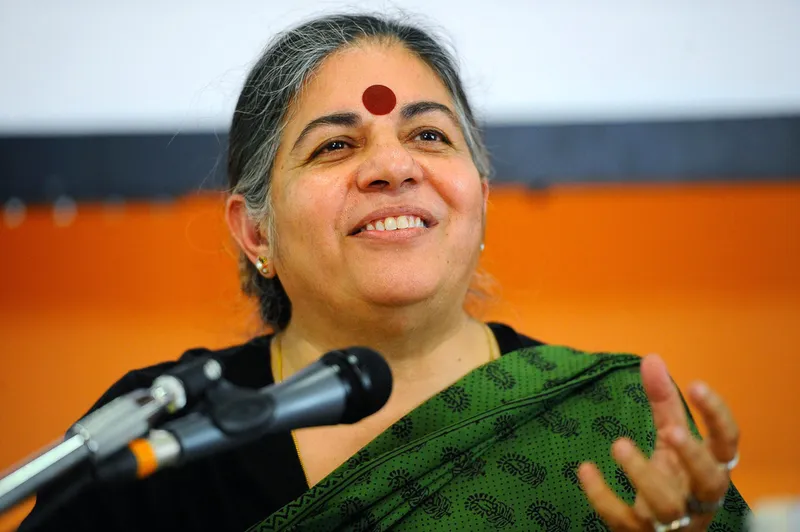Female Intelligence As A Strategy For The Future


Female intelligence – emotional, strategic, and systemic – offers a blueprint for regenerative leadership. Women leaders demonstrate that success depends on nurturing people, communities, and the planet.
Leadership Rooted in Empathy
Jacinda Ardern
Jacinda Ardern, former Prime Minister of New Zealand, has become synonymous with compassionate, crisis-driven leadership. Her response to the Christchurch mosque attacks in 2019 highlighted a model of leadership that combines decisiveness with deep empathy. Under her guidance, New Zealand swiftly passed gun control legislation while simultaneously prioritizing national healing and inclusion.
Ardern herself has said:
"One of the criticisms I’ve faced over the years is that I’m not aggressive enough or assertive enough, or maybe somehow, because I am empathetic, it means I’m weak. I totally rebel against that. I refuse to believe that you cannot be both compassionate and strong."
– Source: The Guardian, 2019
Her approach exemplifies a leadership style that prioritizes human connection and resilience, showing that empathy is not a weakness but a strategic advantage. By fostering environments where people feel heard and supported, leaders like Ardern create adaptive organizations capable of navigating complexity.
Strategic Sustainability
Gina McCarthy
While Ardern demonstrates empathy in governance, Gina McCarthy, former U.S. Environmental Protection Agency Administrator and current White House National Climate Advisor, brings female intelligence to the realm of environmental strategy. McCarthy’s leadership is grounded in systemic thinking, aligning policy, science, and stakeholder engagement to achieve long-term sustainability goals.
She has famously said:
"What we do in the next 10 years will determine whether we have a planet that is habitable for our children. We cannot wait. We must act now."
– Source: Harvard Kennedy School, 2021
McCarthy’s approach underscores that regenerative leadership is inherently forward-looking. Women leaders in sustainability demonstrate that solving complex global challenges requires not only technical knowledge but also collaboration, iteration, and moral courage. By embedding environmental thinking into the heart of decision-making, McCarthy exemplifies how female intelligence can reshape institutions and communities for long-term resilience.
Planetary Intelligence
Dr. Vandana Shiva
At the intersection of environmental advocacy and social justice stands Dr. Vandana Shiva, an Indian physicist, ecologist, and activist. Shiva’s work on biodiversity, seed sovereignty, and sustainable agriculture reflects a holistic approach to leadership: one that recognizes the interconnectedness of life systems.
Shiva has remarked:
"Everything I do is about creating space for diversity. The future depends on diversity, not uniformity. The Earth cannot survive if we continue to think in linear, hierarchical, and exploitative ways."
– Source: Interview with Resurgence & Ecologist, 2020
Her philosophy embodies regenerative leadership on a planetary scale. By emphasizing diversity, collaboration, and systemic health, Shiva demonstrates how female intelligence can guide societies to think beyond immediate profits, towards long-term planetary wellbeing. Leadership, in this sense, is measured not by dominance, but by the capacity to regenerate communities and ecosystems.
Across these leaders, certain principles emerge:
These principles are not abstract concepts – they translate into tangible strategies that transform organizations and societies. From corporate boards to governmental institutions, regenerative leadership reduces fragility and increases resilience in an era of rapid change.
Regenerative leadership is already reshaping multiple sectors. In corporate environments, organizations that empower women in leadership roles report higher innovation and employee satisfaction. In policymaking, leaders like Ardern and McCarthy implement inclusive and long-term strategies that balance social welfare with environmental sustainability. Across communities, Shiva’s advocacy promotes local empowerment and ecological resilience, demonstrating that leadership is as much about nurturing the system as it is about directing it.
Traditional metrics of leadership – assertiveness, control, and short-term results – are increasingly insufficient. Female intelligence offers a regenerative approach integrating human empathy, systemic foresight, and planetary consciousness.
As Jacinda Ardern, Gina McCarthy, and Vandana Shiva exemplify, the future of leadership is inclusive, adaptive, and regenerative. Leaders who cultivate these qualities are not just managing organizations – they are shaping resilient societies and sustainable futures.
The takeaway is clear: fostering female intelligence in leadership is not just a matter of representation – it is a strategic imperative for navigating the challenges of the 21st century. Success will be measured not only in profits or policies but in human flourishing, ecological health, and systemic resilience.
In other words: leadership that is rooted, not hierarchical, empathetic, not exploitative, and regenerative, not extractive, is the blueprint for a thriving future.